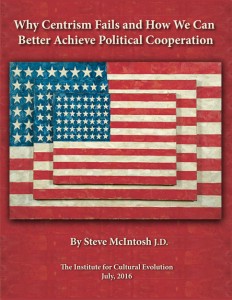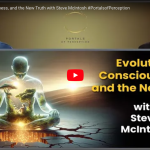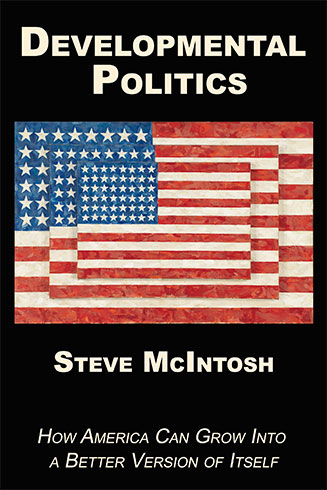My new political paper: Why Centrism Fails and How We Can Better Achieve Political Cooperation
 In this new paper, originally published on the Institute for Cultural Evolution’s website, I argue that contemporary centrist political perspectives lack persuasive power. Centrism consistently fails to overcome polarization because its underpinning ideology of patriotism—compromising for the good of the country—has been eroded by the rise of progressive postmodernism as a political force. While moderate modernist centrism has always relied more on pragmatic reason than ideological passion, the modernist center is now being increasingly pulled apart on both sides by strongly ideological competing moral systems.
In this new paper, originally published on the Institute for Cultural Evolution’s website, I argue that contemporary centrist political perspectives lack persuasive power. Centrism consistently fails to overcome polarization because its underpinning ideology of patriotism—compromising for the good of the country—has been eroded by the rise of progressive postmodernism as a political force. While moderate modernist centrism has always relied more on pragmatic reason than ideological passion, the modernist center is now being increasingly pulled apart on both sides by strongly ideological competing moral systems.
But as the progressive postmodern worldview gains political ground (as evidenced by the strength of Bernie Sander’s candidacy), this points to the potential for the rise of a ‘post-postmodern’ political perspective that can provide a ‘higher form of centrism’—a larger cultural container that can integrate and harmonize the full spectrum of positive American values. As I discuss in the paper, this higher form of centrism includes the new political practice of values integration, which involves working to increase the scope of what people can value.





